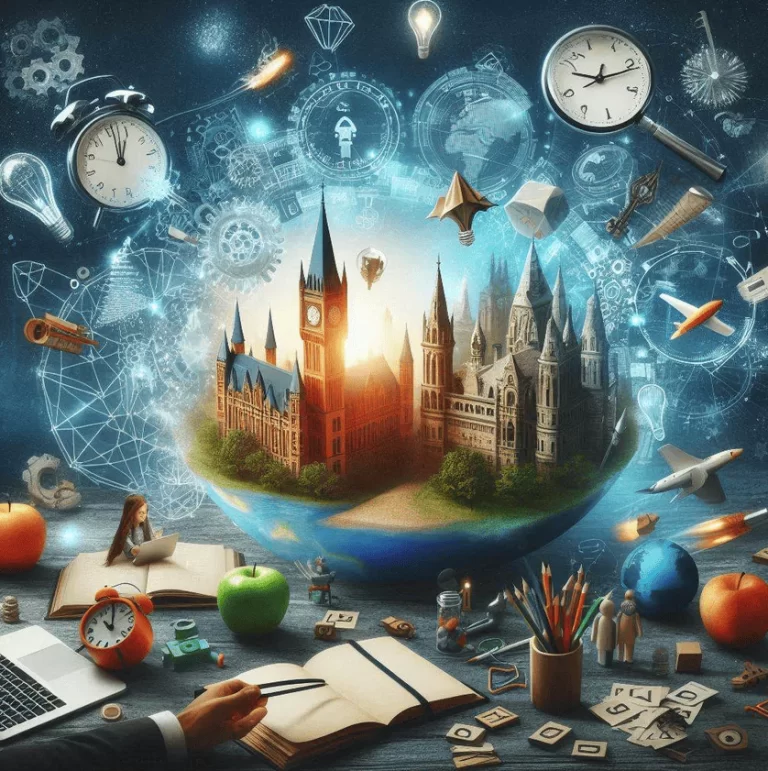
Job skills The advent of artificial intelligence (AI) and automation has fundamentally altered the structure of the modern workforce. These transformative technologies are reshaping industries, enhancing efficiency, and redefining the job skills required to thrive in an increasingly digital economy. As automation continues to eliminate repetitive tasks and AI takes on complex problem-solving roles, workers must adapt, learn, and acquire new capabilities to remain relevant.
This article explores how AI and automation influence the skillsets required in the job market, the challenges posed by these changes, and the opportunities they present for workers, businesses, and society as a whole.
The Shifting Landscape of Work Job Skills
Technological innovation has always been a catalyst for change in the workplace. From the Industrial Revolution to the advent of computers, each wave of advancement has introduced new tools, streamlined processes, and demanded a recalibration of human labor. However, the pace of change brought by AI and automation is unprecedented.
Automation and Routine Work
Automation excels in performing tasks that are repetitive, predictable, and rule-based. In manufacturing, for example, robotic arms have replaced human workers on assembly lines, performing tasks with unmatched precision and speed. In logistics, automated sorting systems streamline the movement of goods, reducing costs and errors. Even in white-collar jobs, software tools now handle data entry, payroll processing, and routine customer service inquiries.
These advancements eliminate the need for certain roles but simultaneously highlight the importance of job skills that are less susceptible to automation, such as critical thinking, creativity, and interpersonal communication. As routine tasks are increasingly automated, the demand for uniquely human capabilities grows.
AI and Cognitive Tasks
AI introduces a different dimension to workplace transformation. Unlike traditional automation, which is task-specific, AI can perform cognitive functions that were once the exclusive domain of humans. AI algorithms analyze vast datasets, identify patterns, and make predictions, enabling applications in fields ranging from healthcare to finance.
For instance, AI-driven diagnostic tools assist doctors in identifying diseases with greater accuracy, while machine-learning algorithms predict stock market trends. These applications highlight the duality of AI’s impact: it enhances productivity but also demands a shift in job skills toward areas where human intuition and contextual understanding remain irreplaceable.
The Evolution of Job Skills
The rise of AI and automation has necessitated the evolution of skill requirements across industries. Workers must now prioritize adaptability, continuous learning, and the development of both technical and interpersonal abilities.
1. Technical Skills
Proficiency in technology is no longer optional. As AI and automation become ubiquitous, workers must develop foundational technical skills to interact with these systems effectively. This includes:
- Data Literacy: Understanding how to collect, interpret, and apply data is crucial in decision-making processes. Workers need to be comfortable working with analytics tools and drawing insights from complex datasets.
- Programming and Coding: Knowledge of programming languages, such as Python or Java, equips workers to design, troubleshoot, or optimize AI-driven systems.
- Cybersecurity Awareness: As digital tools proliferate, protecting sensitive information becomes paramount. Workers must be familiar with best practices for maintaining security in an interconnected environment.
2. Soft Skills
Ironically, the more advanced technology becomes, the more important soft skills are. These uniquely human traits complement technical expertise and are essential for collaboration and problem-solving in automated settings:
- Emotional Intelligence: The ability to understand and manage emotions, both one’s own and others’, fosters strong interpersonal relationships and teamwork.
- Adaptability: The rapid pace of technological change requires workers to remain flexible, embracing new tools and workflows as they emerge.
- Creativity: Machines excel at executing predefined tasks but lack imagination. Workers who can innovate and think outside the box bring irreplaceable value to their organizations.
3. Lifelong Learning
The concept of “education as a one-time event” is obsolete. In a world where job skills can become outdated within years, if not months, lifelong learning is indispensable. Workers must continually update their knowledge and acquire new skills to keep pace with evolving technologies. Online courses, professional certifications, and workshops play a pivotal role in this ongoing process.
Industry-Specific Impacts
The impact of AI and automation on job skills is not uniform across industries. Each sector faces unique challenges and opportunities, depending on the nature of the work involved.
1. Healthcare
AI is revolutionizing healthcare by enabling faster diagnoses, personalized treatment plans, and predictive analytics. For instance, AI-powered tools like IBM Watson assist doctors in analyzing patient records and recommending optimal treatments.
Healthcare workers must acquire new technical skills, such as operating AI-driven diagnostic machines and interpreting complex data visualizations. At the same time, the importance of empathy and patient care cannot be overstated—these human-centered skills remain irreplaceable, ensuring that technology enhances, rather than detracts from, the patient experience.
2. Manufacturing
In manufacturing, automation has largely replaced manual labor in repetitive tasks, such as assembly and quality control. Workers in this sector now need advanced technical skills to operate and maintain automated machinery.
Moreover, as “smart factories” leverage the Internet of Things (IoT) and AI to optimize production processes, the ability to analyze system data and troubleshoot technical issues has become essential. Soft skills, such as teamwork and communication, also play a critical role in managing collaborative workflows between humans and machines.
3. Finance
The finance sector relies heavily on AI for tasks such as fraud detection, credit scoring, and investment analysis. Algorithms analyze vast amounts of financial data in real-time, enabling institutions to make faster and more accurate decisions.
Finance professionals must adapt by honing job skills in data interpretation, risk assessment, and regulatory compliance. Ethical decision-making and the ability to communicate complex financial insights to clients are equally critical.
4. Retail
AI and automation are transforming retail through personalized shopping experiences, automated checkout systems, and supply chain optimization. For example, chatbots provide instant customer support, while AI algorithms predict inventory needs.
Retail workers need to develop digital literacy to interact with AI systems effectively. Additionally, strong customer service skills remain invaluable, as they create a human touchpoint in an increasingly automated shopping environment.
Challenges in Adapting to the New Era
While the benefits of AI and automation are undeniable, the transition poses significant challenges for workers, businesses, and policymakers.
1. Workforce Displacement
The most immediate concern is the displacement of workers whose job skills are no longer relevant. Automation threatens roles in manufacturing, logistics, and customer service, leaving millions at risk of unemployment. Policymakers must address this issue through targeted reskilling programs and support systems.
2. Skill Gaps
The demand for advanced technical skills has outpaced the supply of qualified workers, creating significant skill gaps in the labor market. Bridging these gaps requires collaboration between governments, educational institutions, and businesses to align training programs with industry needs.
3. Ethical Concerns
The integration of AI raises ethical questions about bias, privacy, and decision-making accountability. Workers must develop a nuanced understanding of these issues to ensure the responsible use of technology.
Opportunities for Growth and Innovation
Despite the challenges, the rise of AI and automation offers immense potential for personal and professional growth. Workers who embrace change and invest in acquiring new job skills stand to benefit significantly.
1. Creation of New Roles
While some jobs are rendered obsolete, new roles emerge in their place. Fields such as AI development, robotics engineering, and cybersecurity are expanding rapidly, offering lucrative opportunities for skilled professionals.
2. Enhanced Productivity
AI and automation free workers from mundane tasks, allowing them to focus on more strategic and creative endeavors. This shift not only enhances productivity but also fosters greater job satisfaction.
3. Inclusive Workforce Development
Remote work technologies, powered by AI, enable greater inclusivity in the workforce. Individuals from diverse backgrounds, including those with disabilities, can access job opportunities that were previously out of reach.
Preparing for the Future
To thrive in the era of AI and automation, workers must adopt a proactive approach to skill development. Here are key strategies for staying ahead:
1. Embrace Continuous Learning
Investing in ongoing education ensures that workers remain competitive in a rapidly evolving job market. Online platforms, such as Coursera and Udemy, offer flexible learning opportunities that cater to diverse schedules and interests.
2. Build a Hybrid Skillset
Combining technical expertise with soft skills creates a balanced and versatile skillset. Workers who can bridge the gap between technology and human interaction bring unique value to their organizations.
3. Seek Collaboration
Networking with peers, mentors, and industry professionals provides insights into emerging trends and opportunities. Collaborative environments foster the exchange of knowledge and inspire innovation.
Conclusion
The impact of AI and automation on job skills is profound and far-reaching. While these technologies present challenges, they also offer unparalleled opportunities for growth, efficiency, and innovation. By embracing lifelong learning, adapting to new demands, and cultivating both technical and interpersonal abilities, workers can navigate this transformative era with confidence.
For businesses and policymakers, the priority must be to support this transition by investing in education, reskilling initiatives, and ethical technology deployment. Together, these efforts can ensure that AI and automation serve as tools for empowerment, driving progress while preserving the human essence of work.



